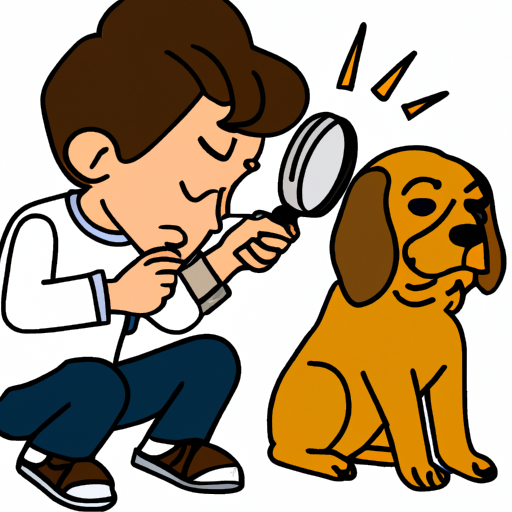1. Introduction
You’ve probably noticed your dog shaking its head more frequently or scratching its ears incessantly. As a caregiver, this might have left you worried and puzzled. In this guide, we will explore the possible reasons behind your dog’s itchy ears and how you can provide the relief your furry friend needs.
2. Common Causes of Itchy Ears in Dogs
The causes of itchy ears in dogs can be manifold, but here are the most common ones:
- Allergies: Just like in humans, dogs can also have allergic reactions to certain foods, pollens, dust mites, or mold spores. These allergies can cause inflammation in the dog’s ears, leading to itching.
- Parasites: Ear mites, ticks, and fleas can all infest your dog’s ears, causing severe itching.
- Bacterial or yeast infections: These can be a result of trapped water in the ear or allergies.
- Foreign bodies: Grass seeds, burrs, or other objects can become lodged in the ear, causing discomfort and itching.
3. Recognizing Symptoms
Your dog relies on you to recognize and understand its discomfort. If your dog’s ears are itchy, you may notice the following symptoms:
- Frequent ear scratching
- Head shaking
- Redness and swelling
- Unpleasant odor
- Changes in behavior, such as becoming more irritable
4. Providing Relief and Treatment
Here are some ways you can provide relief for your dog’s itchy ears:
- Regular cleaning: Keeping your dog’s ears clean can help prevent infections and parasites. Use a vet-approved cleaner once a week.
- Anti-parasitic treatment: If parasites are the cause, your vet will likely prescribe an anti-parasitic medication.
- Allergy treatment: If allergies are causing the itch, your vet may recommend allergy medications or a change in diet.
- Medicated ear drops: These can help soothe inflammation and treat bacterial or yeast infections.
| Type of Treatment | Frequency |
|---|---|
| Regular cleaning | Once a week |
| Anti-parasitic | As prescribed |
| Allergy treatment | As prescribed |
| Medicated drops | As prescribed |
5. Prevention is Better Than Cure
Take steps to prevent itchy ears in your dog:
- Regularly check your dog’s ears for signs of infection or parasites.
- Clean your dog’s ears weekly with a vet-approved solution.
- Keep your dog’s ears dry, especially after baths or swimming.
- If your dog has allergies, avoid known allergens and consider hypoallergenic food.
Frequently Asked Questions
Q: How do I clean my dog’s ears?
Use a vet-approved ear cleaning solution. Pour a bit into the ear, massage gently, then let your dog shake out the solution. Wipe the visible parts of the ear with a clean cotton ball. Never use a cotton bud deep in the ear.
Q: Can human ear drops be used for dogs?
No. Human ear drops may not be suitable for dogs and can potentially cause harm. Always consult with your vet.
Q: How often should I check my dog’s ears?
Inspect your dog’s ears at least once a week. If your dog has had ear problems in the past, check daily.
Q: Can my dog’s itchy ears be a sign of a serious condition?
Persistent itching can indicate an underlying issue, such as an infection or allergies. If your dog’s symptoms persist, seek veterinary advice.



